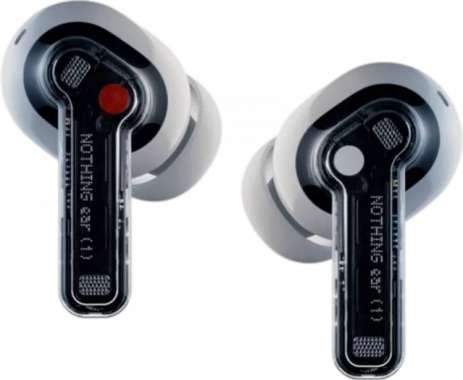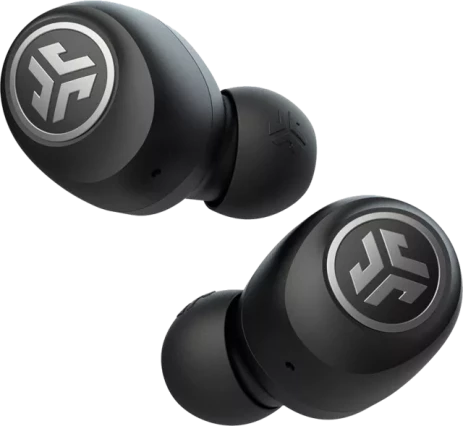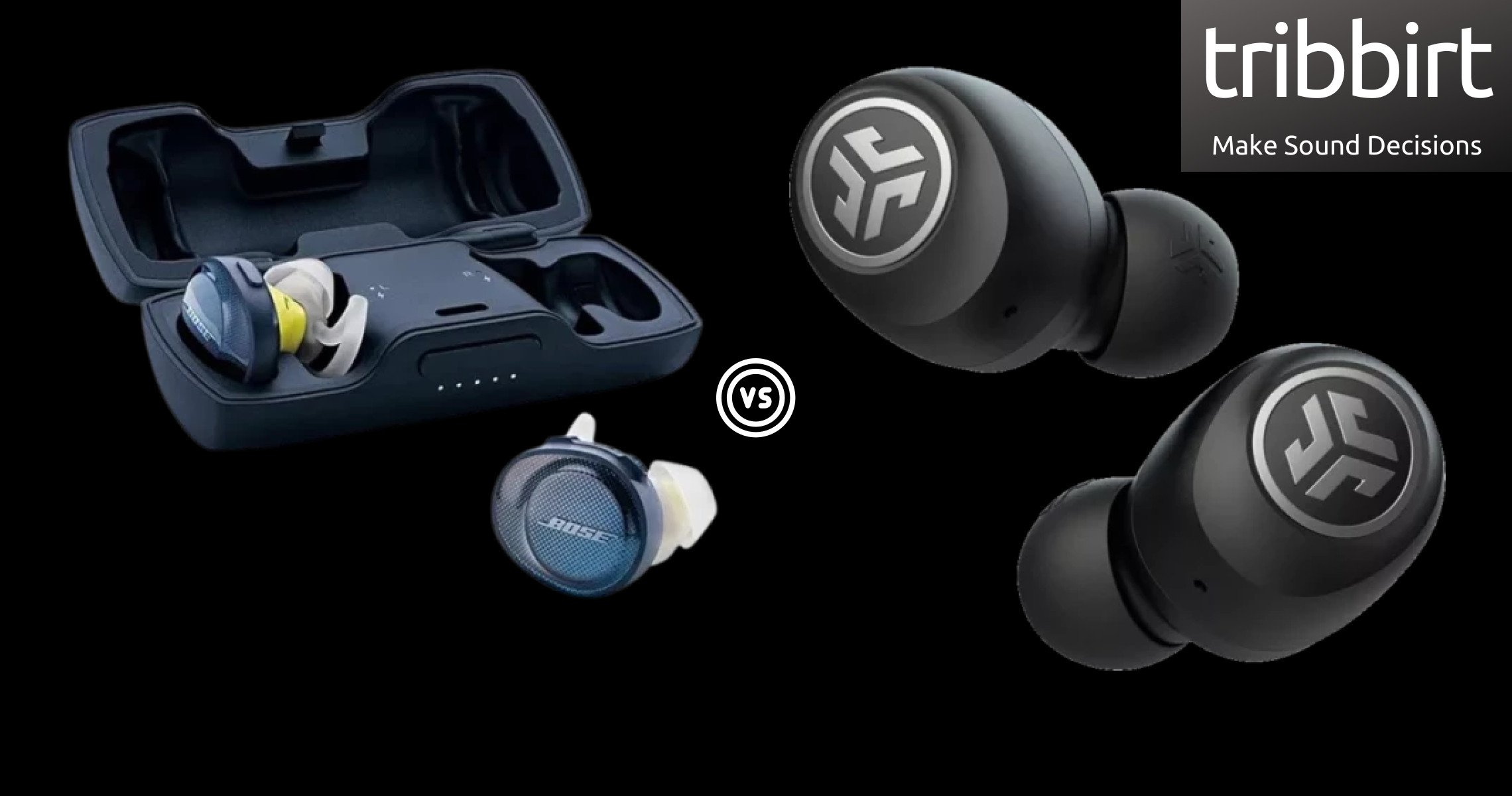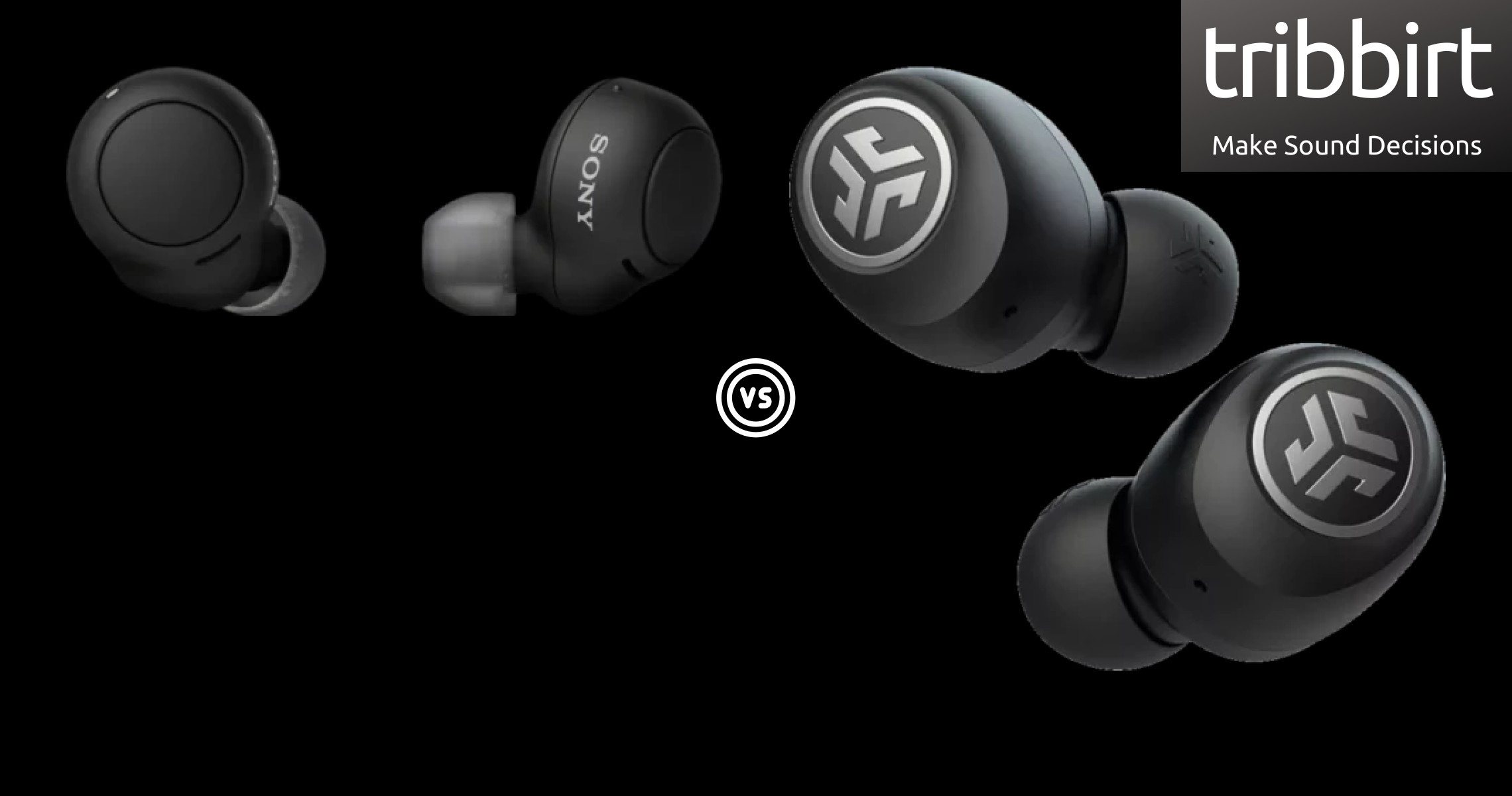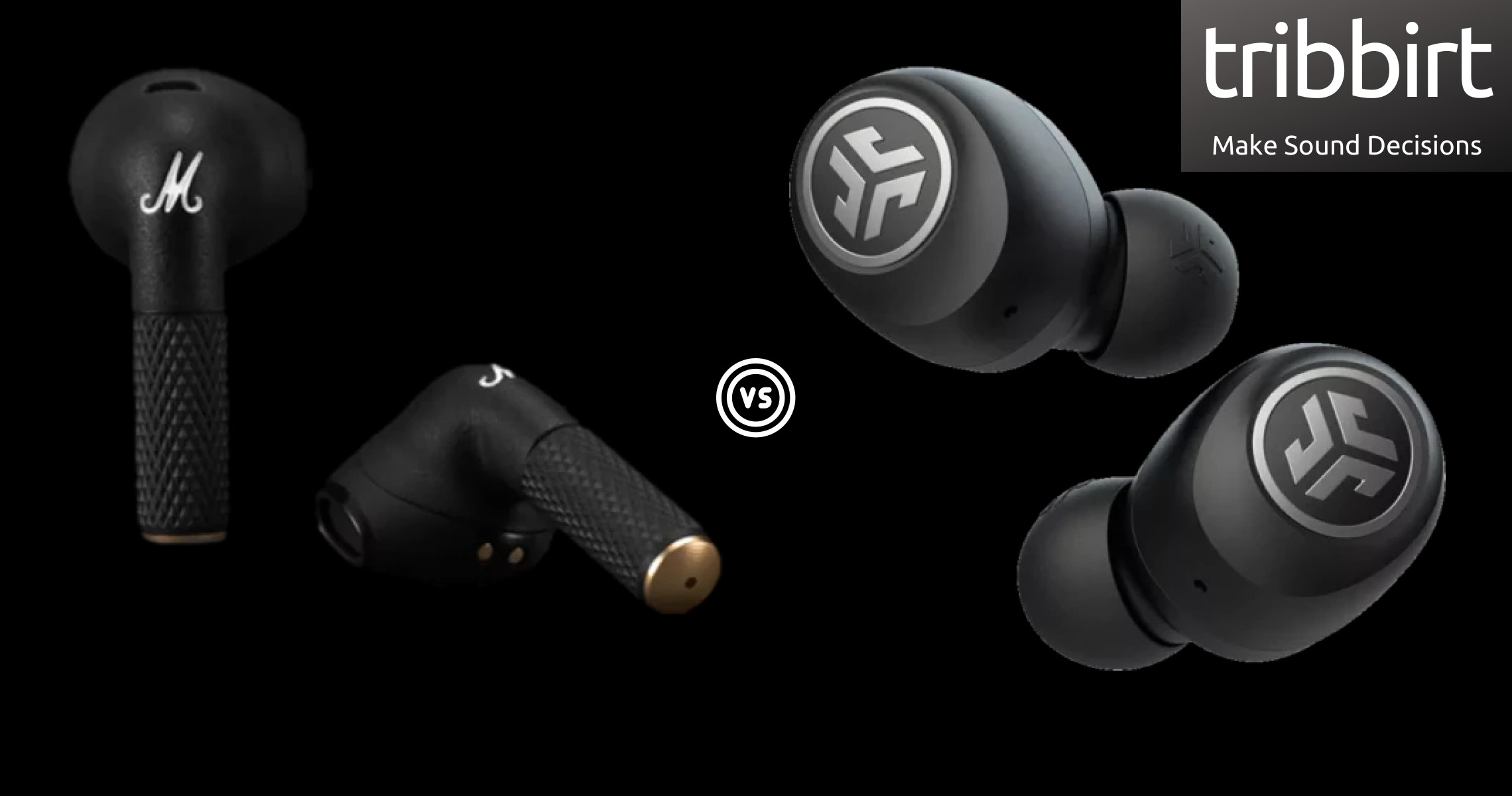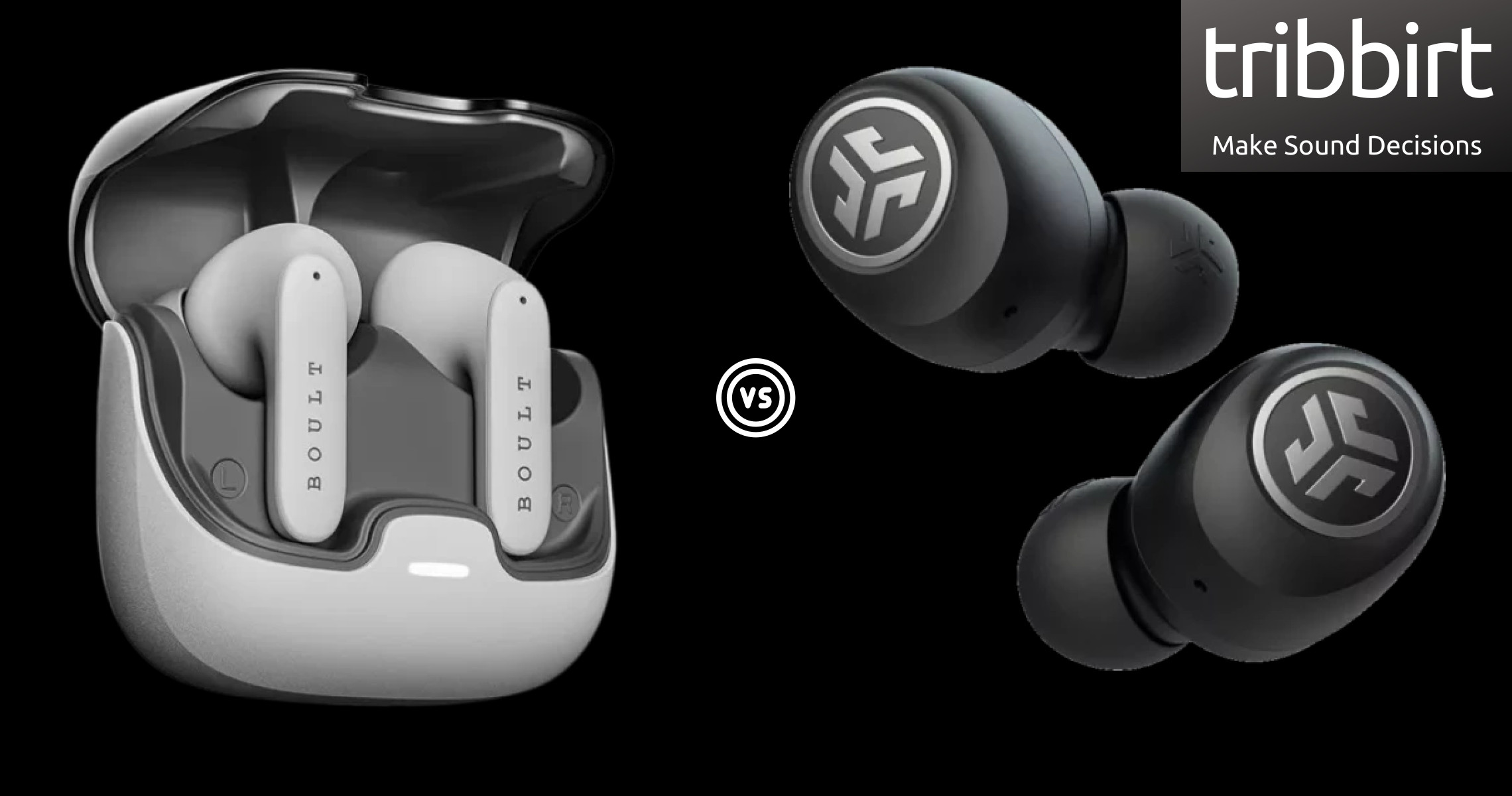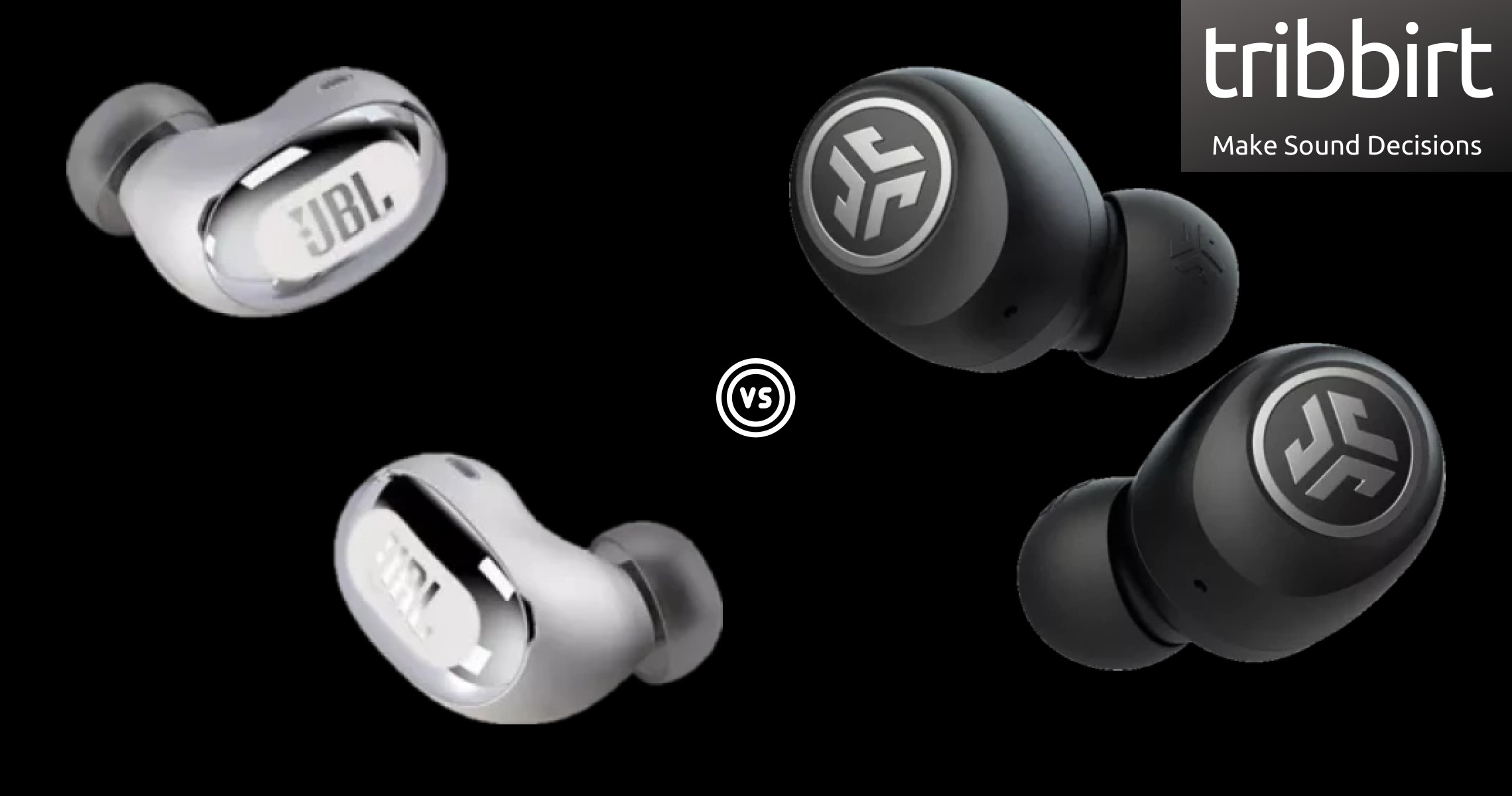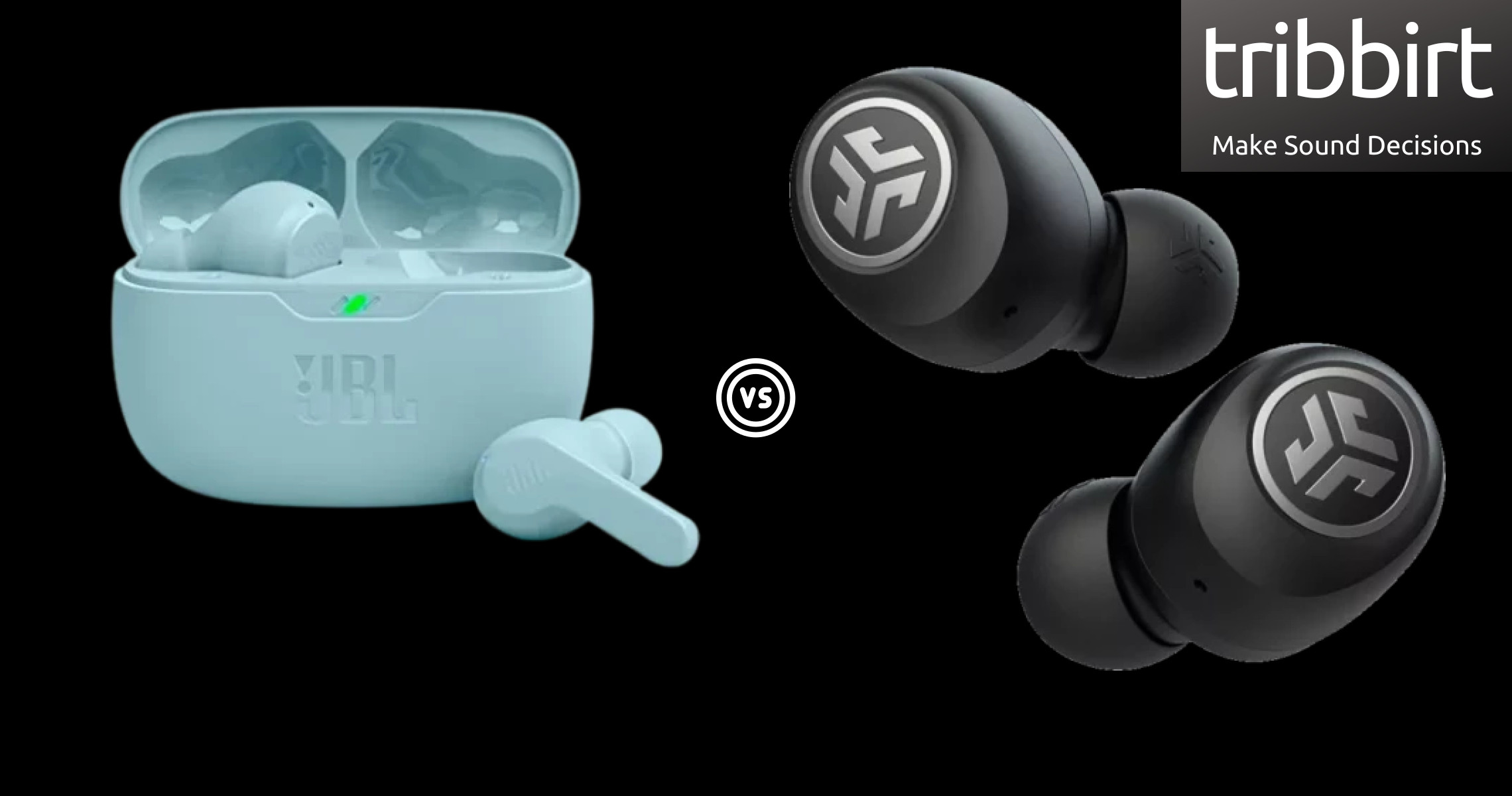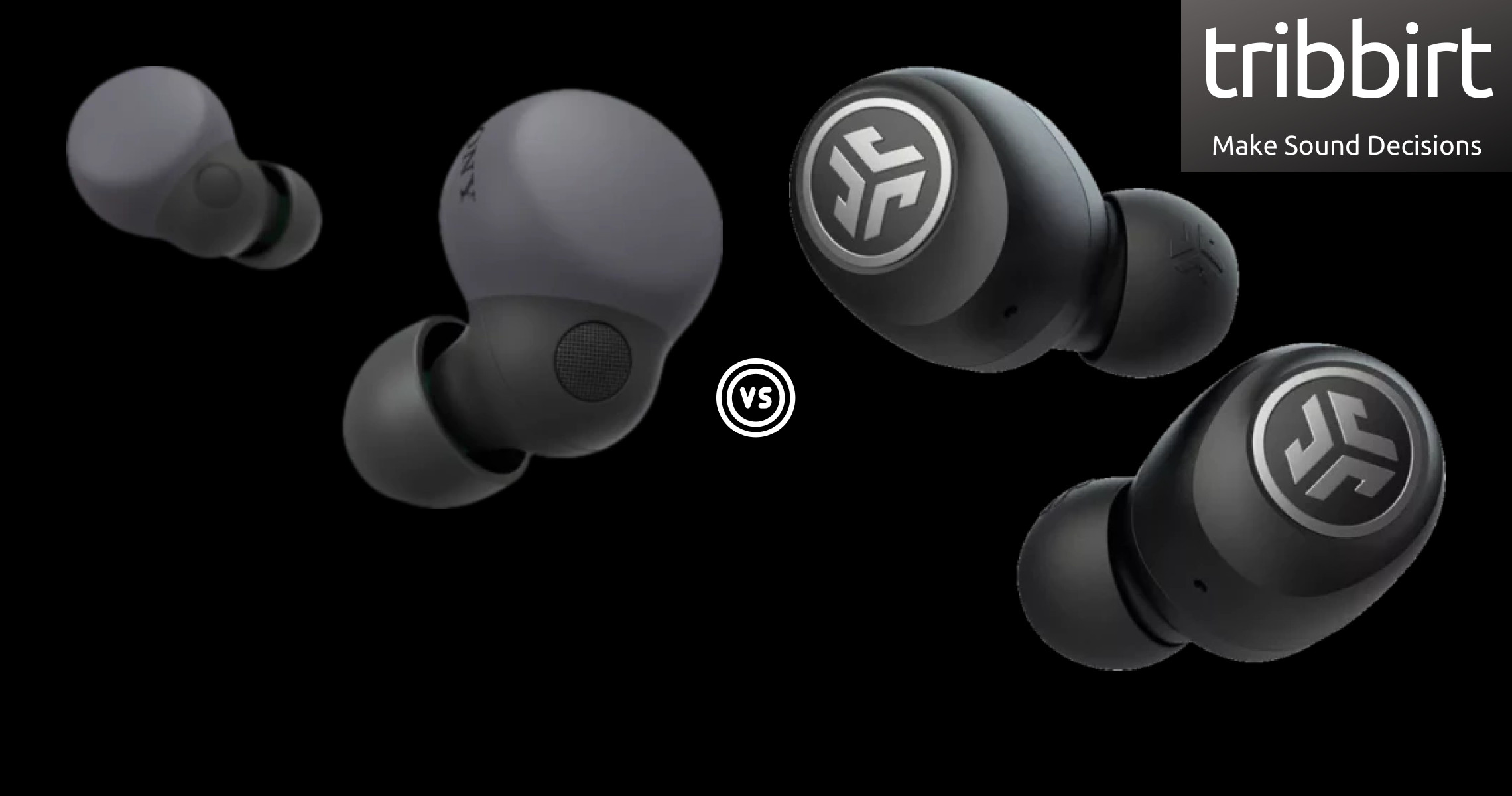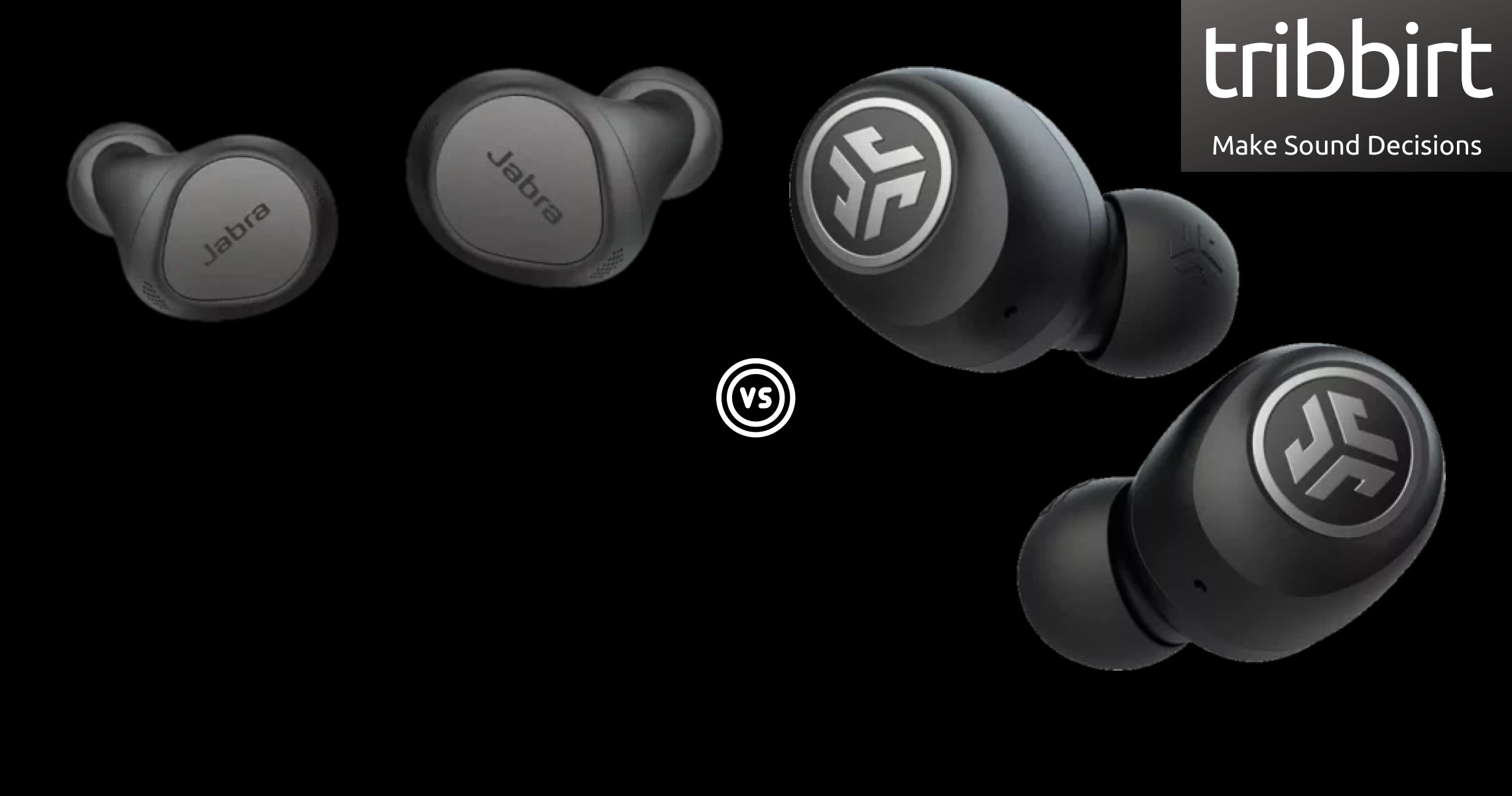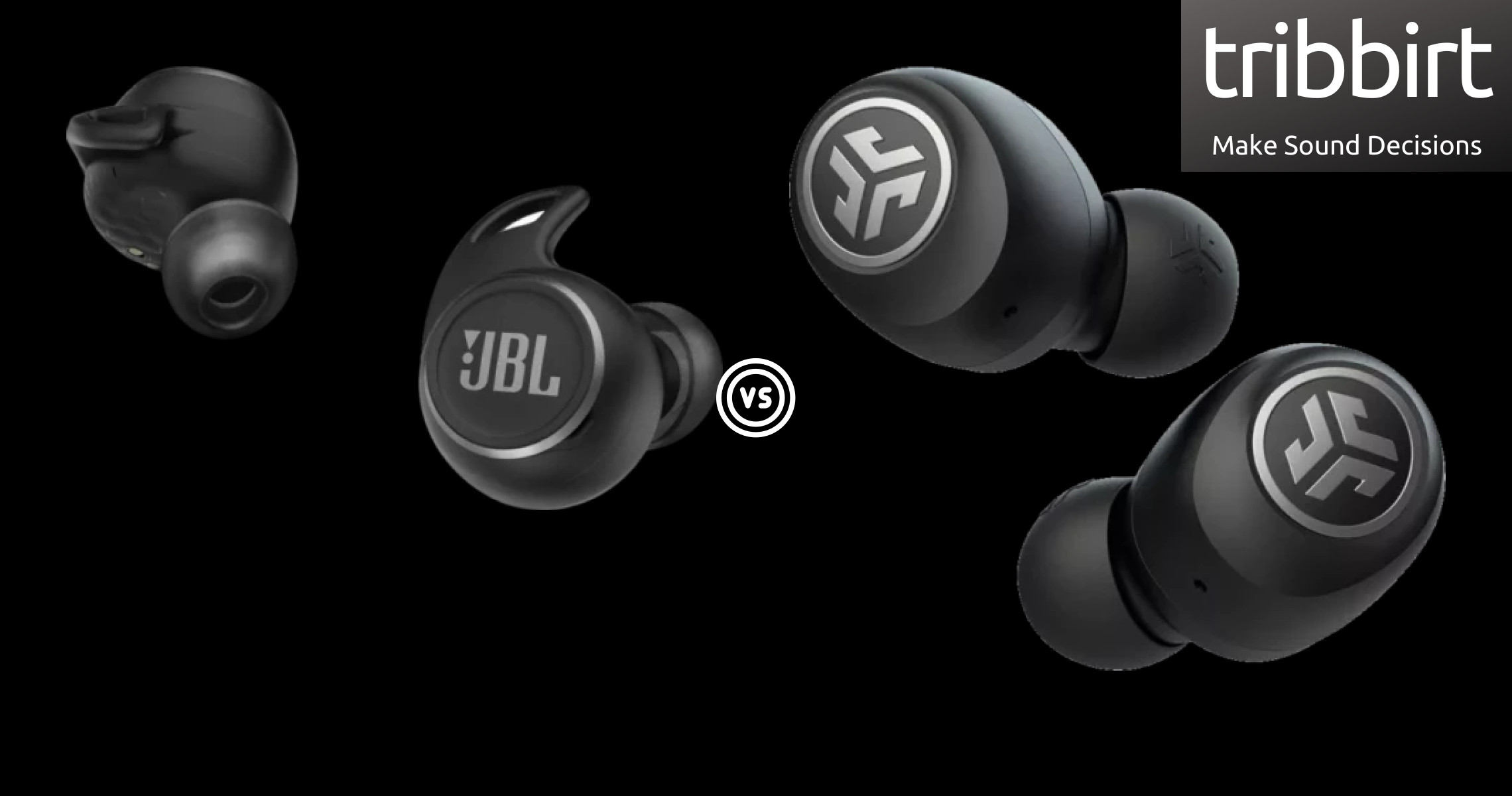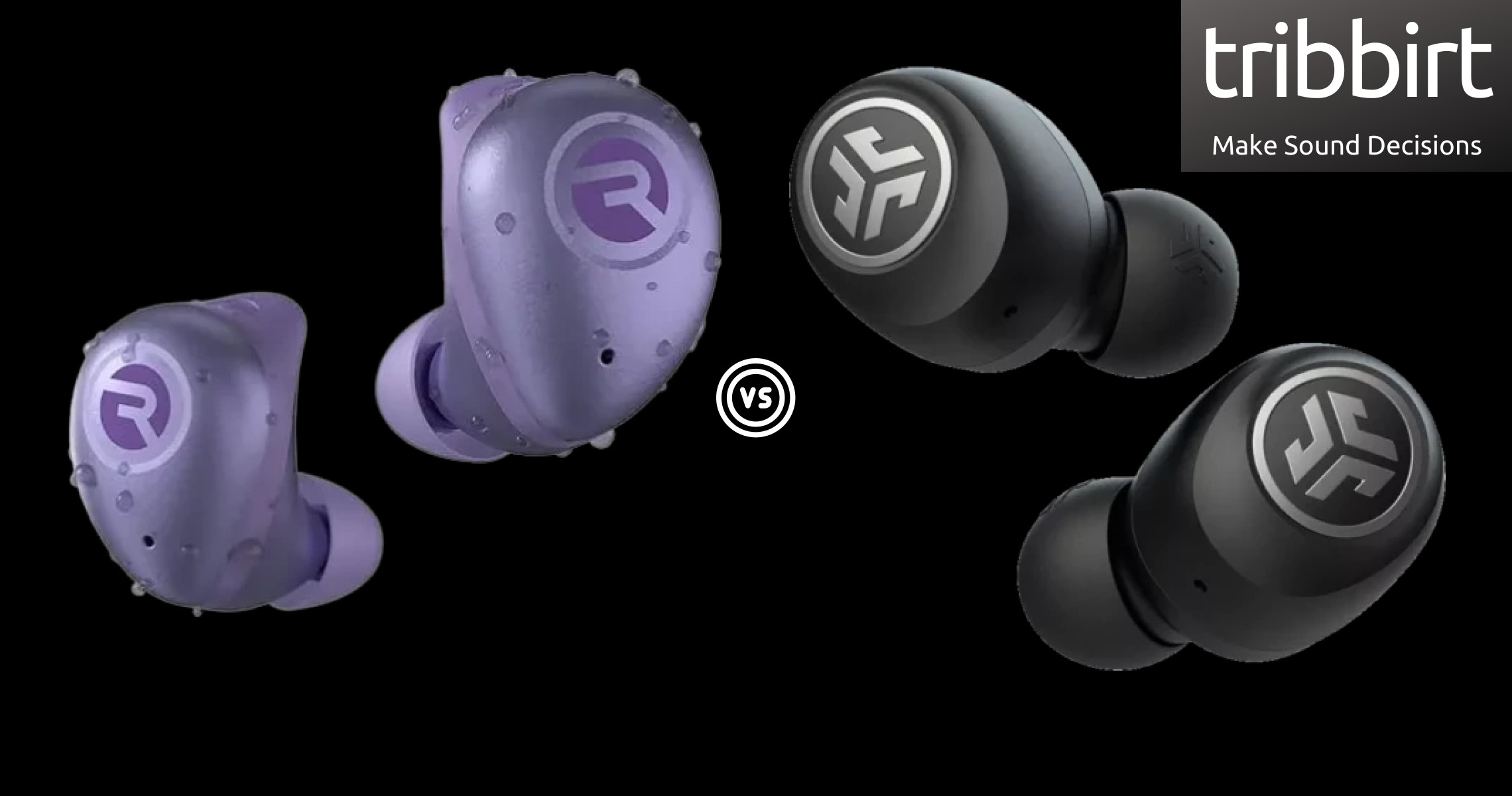IP ratings refer to the level of protection given by an enclosure, against dust and water. In the format of IPXX, 'X' represents a number The first value represents protection against solids say dust, followed by the one that refers to protection against liquids (sweat).
Having a value of IP44, the JLab Go Air's rating is read as, the first number of 4 denotes that they are protected against objects greater than 1.0mm such as wire, and the second number of 4 means that they can withstand low pressure spray similar to that of a shower head when tilted at 180° for 10 minutes. Compared to the JLab Go Air, Nothing Ear 1 have a rating of IPX4 meaning that
no data available to specify a protection rating
and that of liquids is that,
they both have the same rating against liquids
JLab Go Air have a weight of 10g . We consider a lower weight best for the reason that lighter devices are more comfortable to move with.
Nothing Ear 1, at 9.4g
are lighter than the JLab Go Air with a difference -0.6g
True wireless devices have no cables connecting any part of the device together, JLab Go Air are true wireless for this case since they have no cables. This is a key difference as some wireless earbuds have wires connecting the 2 earbuds .
Nothing Ear 1 also is true wireless because it has no cables linking the 2 earbuds .
JLab Go Air have sweat resistance
Nothing Ear 1's resistance to sweat makes both devices ideal for use during long-distance running, marathons, training in workout bodysuits, etc
JLab Go Air have stereo speakers, devices with stereo speakers deliver sound from separate channels on both left and right sides, creating a richer sound and a better listening experience. Both Nothing Ear 1 and JLab Go Air have stereo speakers
The JLab Go Air sit tightly in place, this creates a sound covering that tones down background sounds and also prevents the earbuds voice audio from leaking out .
Both Nothing Ear 1, and JLab Go Air have passive noise reduction which implies that they limit ambient noise instead of actively using technology to cancel it out.
JLab Go Air have a unit size of 8mm in diameter, the bigger the unit the more powerful, and can produce better bass. The driver unit is the component that makes sound in the device, its size corellates with the loudness of the earbuds. Nothing Ear 1 driver unit is 11.6mm in diameter,
making them have a larger driver unit than that of JLab Go Air by 3.6mm
, as many tend to believe that driver units of a bigger size automatically produce better sound quality.
However, large drivers usually have difficulty producing high frequencies so yeah, larger drivers are capable of generating louder sound, but this does not mean that they produce better quality sound. JLab Go Air's lowest frequency is at 20Hz, low-frequency response inidcates how well an audio component generates low frequencies that can be heard, and if it makes any changes to the signal on its way through. Nothing Ear 1's lowest frequency is at 20Hz, this implies that
both devices produce equal bass
The JLab Go Air's highest frequency is at 20,000Hz, high-frequency response tells how well a particular audio component generates high recognizable frequencies and if it changes to the signal on its way through.
Nothing Ear 1's highest frequency is at 20,000Hz, this means that
both devices produce equal treble
SPL, is the pressure level of sound, measured in decibels, dB, JLab Go Air's measurement is 103dB/mW. Devices with a higher sound pressure level are generally louder when supplied with any given audio source. The JLab Go Air's battery life is 5 hours, these last less than 5 hours of listening which is considered average for a single charge.
A device's battery life is commonly given by the manufacturer, and with longer battery life, you get to use it for longer and have to charge the device less often. Nothing Ear 1's battery life is
equal to that of the JLab Go Air
. Each time you recharge your device, they get a little less listening time. The effect is barely noticeable at first, but over a few years, your wireless earbuds will have shorter listening time.
The battery life of the charging case is given by the vendor, and JLab Go Air's case has a full charge of 15 hours. A charging case with a longer battery life enables you to recharge your earbuds on the go several times before recharging the case itself. Nothing Ear 1's charging case has a battery life of 29 hours,
more than that of JLab Go Air by 14 hours
It takes 1.5 hours to fully charge the JLab Go Air's battery.
It is recommended to fully charge the battery before using the earbuds for the first time. Nothing Ear 1 takes 1.5 hours to fully charge the battery,
equal to that of the JLab Go Air
The JLab Go Air have a battery level indicator, an indicator shows you when the earbuds has a low battery. The battery indicator lights display the charging status of your device and charging case.
Nothing Ear 1 too have a battery level indicator, these allow you tell the charging state of your device, whether fully charged, or the battery is running low. JLab Go Air have Bluetooth version of 5, Bluetooth is a wireless technology standard that enables data movement between devices placed in range, using short-wavelength, ultra-high frequency radio waves. Nothing Ear 1 has a Bluetooth version of 5.2,
newer than that of JLab Go Air
. Newer versions provide faster data transfers.
JLab Go Air have a 10meters distance connecting via Bluetooth. Nothing Ear 1 have a maximum range of 10meters,
equal to that of the JLab Go Air
JLab Go Air have 2 microphones. Nothing Ear 1 microphones are 6,
more than that of JLab Go Air by 4
. More microphones result in better sound quality and enable the earbuds to filter out noise.
The JLab Go Air microphone sensitivity is measured at -38dBV/Pa. The amount of the analog or digital output signal from the microphone with its input stimulus is a calculation of its sensitivity. It's the 'loudness' of the sound that the earbud microphone can pick up.
The JLab Go Air, so you can access the volume control, pause, play, mute, etc whichever functions are supported on the device. The Nothing Ear 1 also have a control panel on them. The JLab Go Air have a warranty period of 2 Years, the period of time that warrant free repair and adjustment services in case of a malfunction occurring under normal use following instruction manuals.
When covered under the manufacturer’s warranty it is possible to get a replacement a malfunction occurs. Nothing Ear 1 have a warranty period of 1Years,
less than that of JLab Go Air by 1 Years
.
The JLab Go Air support voice prompts. Automatically receive information via audio messages, like if there is a problem with the connection.
The Nothing Ear 1 also have voice prompts .i.e the device notifies you if the battery is running low, and you need to recharge the device.
